
Related
Topics
Today, Alberto Fujimori is going to be re-inaugurated for his third term as Peru’s President. Only two foreign presidents will be attending the official swearing in ceremony at Congress, fourteen Latin American leaders have already turned down their invitations to attend. Outside the streets of Lima have been bursting with massive demonstrations from all sectors of Peruvian society in what have been called the largest mass protests in the history of Fujimori’s 10-year authoritarian regime. [includes rush transcript]
The opposition candidate Alejandro Toledo pulled out of the race charging Fujimori with widespread fraud and voter intimidation. Fujimori had also changed the constitution so that he could be re-elected to a third term, something that was previously prohibited in Peru.
The demonstrations, which have been filling the streets of Lima this past week, are calling for Fujimori to step aside. On Wednesday thousands of women marched demanding a democratic voice, and yesterday the streets were bursting as people who had come to the capital city from all parts of Peru mobilized against Fujimori’s illegitimate presidency.
Latest reports from Peru say the authorities manning the entry posts to the city are removing bus license plates preventing people from coming into Lima. Today’s protest has been named the “March of the Four Suyos”–a reference to the far reaches of the ancient Inca Empire.
Guests:
- Jo-Marie Burt, Editor of NACLA Report on the Americas NACLA—The North American Congress on Latin America. Jo-Marie is currently in Lima, Peru.
- Pancho Soberon, Director of The Pro Human Rights Association of Peru and Member of the Directorate of National Human Rights Coordinating Committee of Peru.
- Sophia Macher, President of the National Human Rights Coordinating Committee of Peru.
- Mark Berenson, Father of Lori Berenson.
Related link:
Transcript
AMY GOODMAN: We’re going to go down to another country right now very important to the US administration and foreign policy, and that is Peru. Today, Alberto Fujimori is going to be re-inaugurated for his third term as Peru’s president. Only two foreign presidents will be attending the official swearing-in ceremony at Congress. Fourteen Latin American leaders have already turned down their invitations to attend. And outside, the streets of Lima have been bursting with massive demonstrations from all sectors of Peruvian society in what’s been called the largest mass protests in the history of Fujimori’s ten-year authoritarian regime.
The opposition candidate, Alejandro Toledo pulled out of the race, charging Fujimori with widespread fraud and voter intimidation. Fujimori had also changed the constitution so that he could be reelected to a third term, something which was previously prohibited in Peru.
JUAN GONZALEZ: The demonstrations, which have been filling the streets of Lima this past week, are calling for Fujimori to step aside. On Wednesday, thousands of women marched demanding a democratic voice. And yesterday the streets were bursting, as people who had come to the capital from all parts of Peru mobilized against Fujimori’s illegitimate presidency.
Latest reports from Peru say the authorities manning the entry posts to the city are removing bus license plates and preventing people from coming into Lima. Today’s protest has been named the “March of the Four Suyos,” a reference to the far reaches of the ancient Inca Empire.
AMY GOODMAN: And in Lima, Peru right now is Jo-Marie Burt. She’s editor of the NACLA Report on the Americas, the North American Congress on Latin America. We’re also joined on the telephone by Pancho Soberon, who is director of the Pro-Human Rights Association of Peru. Jo-Marie Burt, can you tell us what the streets look like right now?
JO-MARIE BURT: Hi, Amy. Yeah, the streets in Lima are bursting with people, and there is an incredible mix of enthusiasm and indignation. People from all walks of life from all over Peru are in the streets demanding new elections and that Fujimori step down. You have peasants, workers, professors, professional women. There was even a delegation of retired policemen last night demanding that Fujimori step down.
There’s been little protest — little repression on the streets yesterday and the day before, but as I heard you say in your introduction, there have been efforts to prevent large delegations coming from the interior of the country, so a lot of people have been prevented from actually getting to Lima. So that’s how things are looking right now.
JUAN GONZALEZ: And until now, there have been no arrests of any protesters or attacks on the protests?
JO-MARIE BURT: Well, I haven’t heard of any. Pancho probably might be able to better tell you if there’s been some — anything going on in recent hours, because people were staying out all night last night. There was an all-night vigil, and protests are starting today at 9:00 in the morning, because Fujimori is scheduled to be inaugurated at 10:00 a.m.
AMY GOODMAN: Pancho Soberon of the Pro-Human Rights Association of Peru, how did these mass protests get organized? Were they all at the instigation of the opposition, presidential candidate Toledo?
PANCHO SOBERON: Well, we’re expecting that in the next few hours they are concentrating people in the Paseo de la Republica, or starting the march to the Congress on the Plaza Major. That was the announcement made last night by Alejandro Toledo, when he also announced the constitution of a national front for struggling for democracy in Peru in the next period. So, we do not have received information at this point whatever mobilizations have been produced yesterday in other cities.
We expect that in Arequipa, in Iquitos and in other places in the country, also mobilizations have been made by citizens and social organizations and political parties. Yesterday, when the manifestations ended, we do not register the announces of police intervention. We hope perhaps this morning there’s going to be some tensions when the columns of the march approaches to the Plaza Major and the Congress.
JUAN GONZALEZ: And, Pancho Soberon, is the intention of the demonstrators to stay in the streets until the government resigns, or is there an ending date or time for the demonstrations?
PANCHO SOBERON: Well, the demonstrations will end today, in this period. But as I said yesterday it was announced that a national front of all political parties of civil society organizations has been demanded by Alejandro Toledo, and from thereon also he announced that a shadow cabinet will be conformed with personalities of the opposition to follow up how the demands for democracy, how the agenda proposed by the OAS is achieved by the dialog and negotiations between the government and the opposition, with a claim of a final general new elections with international standards to bring democracy to Peru.
AMY GOODMAN: We’re also joined on the telephone from Lima by Sophia Macher. She is the President of the National Human Rights Coordinating Committee of Peru. Can you tell us about the women’s march that is feeding into this largest mass mobilization that we’ve seen in many years in Peru?
SOPHIA MACHER: Yes. This is a second women’s demonstration in this short time, and the last one was really a largest women’s demonstration, because was a lot of women from outside Lima arrived. And it was a very, very impressive demonstration, because the women was very hard, no? And it was also very — how you say, pacifico.
JUAN GONZALEZ: Peaceful.
SOPHIA MACHER: Yes. Yes. But I think the feeling is these are very strong, very strong women with very clear speeches and confront the government very clear, no? I think it was very important for all the population to see this kind of demonstration. It gives a very good feeling, no?
JUAN GONZALEZ: Pancho Soberon, what has been the reaction of the supporters of Fujimori, either in the military or in the other groups within Peruvian society who support him, because he did get some votes, obviously, in the — in his race for the presidency?
PANCHO SOBERON: There was an attempt by President Fujimori to produce confusion among citizens, when he announced what he called a moderate opposition, was named as a prime minister for his latest executive. I think that this produced a reaction, particularly with peasants and citizens from Huancavelica, where this person Mr. Salas was the manager of the city. He, in the past, has produced a march with peasants to Lima, and now he was accused of appeasing to the demands of the centralization of the citizens of Huancavelica and provinces.
This was the attempt in these days to announce a destructive measure of the government with the — respecting the results of the march [inaudible] years. We don’t know what is going to be the message of Fujimori this morning when he assumes his new third unconstitutional period. Then we could comment what the proposals are.
AMY GOODMAN: Only two leaders came to this swearing-in that’s happening today: Hugo Banzer of Bolivia, a former military dictator, Gustavo Noboa of Ecuador, elected vice president, came to power in January after a military-backed coup ousted the president. Fourteen Latin American presidents turned down the invitations to attend.
Jo-Marie Burt, editor of NACLA, you’re there in Lima. What about the US support of Fujimori? They’ve always backed him, poured millions into the Peruvian military, knowing its human rights abuse history, and yet seem to be somewhat backing off. Is it because Alejandro Toledo, also very much connected to the World Bank, and they see that Fujimori’s on his last legs?
JO-MARIE BURT: Well, I think the larger issue here is that Fujimori has really passed the limit of what’s acceptable internationally for — in terms of democratic rule. And I think the US is looking at other parts of the region and probably other parts of the world, saying to itself, if we don’t do something here, if we don’t take a stand here, there’s going to be further problems. And that’s not to say that the US is any big champion of democracy, but there’s a status quo here that it’s interested in maintaining, that the whole idea of free elections and free trade, free elections and the image of democracy, at least, if not anything in substance, is good for business. And I think that’s something that’s behind US policy.
But you also have to remember that Peru is one of the main fronts in the drug war. So, even if the US government backs off in giving military aid to Peru, it’s not going to stop giving drug aid. I can’t imagine that it’s going to stop giving drug aid. So I think things are going to — you’re going to see mixed signals from Washington to Peru, and I think that’s what happened with the OAS also.
AMY GOODMAN: And finally, Pancho Soberon, your major objections to Fujimori, and do you see him being ousted by the end of the year?
PANCHO SOBERON: Well, we hope that at least in this next period, a civil society and opposition continue struggling for democracy and that after producing basic reforms in democratic institutions we could achieve a new election, a new popular consultation to bring Peru to a final democrat with participation of citizens all over the country. This is the task and for that task also human rights movements, human rights organizations who are with a commitment of supporting the activities of Peruvian citizenship.
AMY GOODMAN: We want to thank you all for being with us. Pancho Soberon, director of the Pro-Human Rights Association of Peru; also Jo-Marie Burt, editor of NACLA Report on the Americas, in Lima right now; and Sophia Macher, president of the National Human Rights Coordinating Committee of Peru, all speaking to us from Lima, where the largest mass protest in modern Peruvian history is taking place against the backdrop of Alberto Fujimori being inaugurated for an unprecedented third term. When we return, we’re going to stay in Lima for a few more minutes and speak to Mark Berenson, father of Lori Berenson, who’s at the airport about to go visit his daughter in prison in Arequipa, Peru’s second city. You’re listening Pacifica Radio’s Democracy Now! We’ll be back in a minute.
[break]
AMY GOODMAN: You’re listening Pacifica Radio’s Democracy Now!, the Exception to the Rulers. I’m Amy Goodman, here with Juan Gonzalez, as we remain in Lima, Peru for a few more minutes with Mark Berenson, father of Lori Berenson, who was sentenced to life in prison in Peru, a young woman from the United States who went down to Peru, a solidarity activist in Latin America, and at the end of 1995 was arrested by the Peruvian secret police. She was put on trial in well-known trials in Peru — that happened to thousands of Peruvians, as well — military tribunals, hooded judges. She did not hear the evidence that was presented against her, and she was ultimately convicted with treason against the fatherland. They said she was a leader of a terrorist organization, put at the Yanamayo Prison, where many other political prisoners are held, which is high in the Andes.
And then when there was international attention from the Organization of American States, she was brought down to a lower-altitude prison and put in maximum security at the Socabaya Prison, where I had the opportunity to see her last year. She can be seen by almost no one but her family and official delegations and religious people. Mark Berenson, welcome to Democracy Now!
MARK BERENSON: Good morning. I’m here in cloudy Lima in the airport. There’s a lot of bunting; it’s very festive here. But I don’t — there isn’t the military presence, at least over here. Things are quiet, but I am twenty to thirty minutes away from Pancho and Sophia and Jo-Marie, where the action is.
But I did read the papers this morning, and I have the photos to bring home to you. Liberation, a paper run by César Hildebrand, a very popular journalist in the opposition, and La Republica shows the estimated crowd at between 200,000 and 250,000 last night. But if you watch Peruvian television this morning at the airport, as I do, you don’t get that sense at all. They show that there’s practically nobody in the streets. You would get the sense that maybe 500, 1,000 people. That’s the way the Fujimori government has manipulated the media here. When you watch the television that all the Peruvians watch.
JUAN GONZALEZ: Well, Mark Berenson, a similar situation here. The front page of the New York Times today has not Peru and the massive demonstrations, but a huge take-out piece attacking Hugo Chavez, the president of Venezuela, and the radical reforms that he’s instituting, but almost nothing about Peru.
I’d like to ask you, since the uproar over the recent elections, has there been any change on the part of the Fujimori government in terms of the way that your daughter is being treated or any prospects for any change in her situation?
MARK BERENSON: It’s difficult to assess, because during the Peruvian runoff campaign, Lori Berenson was the number one issue in the Peruvian political campaign. Both candidates were kicking around, like a soccer or football, who can boot her further to show how macho they are against the fabricated terrorist that they made of Lori. And it was sad. She took a terrible beating, as did the United States, because of Senate Resolution 43 calling for the US to withhold economic, military and political aid from Peru unless Peru got its act together.
Now, Peru hasn’t gotten its act together, but that Senate resolution caused demagoguery against the US and against Lori. The anger at the US, the Yankee imperialist interfering in our affairs, and then taking it out on Lori publicly. So, we don’t know what that’s going to do.
The new prime minister, Federico Salas, who ran an opposition presidency and got about 2.5% of the vote, is very anti-Lori. He was the person who debated Toledo in Miami on a teleconference to Lima, where he accused Lima of being soft on terrorism. And he said he’d never free Lori, is guilty. This guy is a clown, as far as I’m concerned. Salas — Mr. Salas is part of a party run by a person named Rey Rey and now congressman, and last summer, it’s interesting for you all to know that an emissary of Rey Rey approached Rhoda and I in New York, went to dinner with us and asked us for like $10,000 for the Rey Rey campaign. We never heard of the guy. Now, I’m not saying that Salas, who bad-mouthed Lori knew anything about that, but we certainly said we’re not being involved in the politics of Peru. We had never even heard of Rey Rey. It was just interesting to see that it was Salas who attacked Toledo about Lori, and that’s what got it all started here.
AMY GOODMAN: What is the level of organizing you’re doing in the United States here, Mark Berenson, when you’re not visiting Lori Berenson in prison in Peru?
MARK BERENSON: Well , I do know that the local chapter of the Committee to Free Lori Berenson — Rhoda would be able to tell you more about that — is participating in front of the Peruvian embassy in Washington today in solidarity with what’s going on. I mean, we’re in the midst of a dictatorship that will officially start at the inauguration today. And that was said by Congresswoman Ana Elena Townsend, who said the other day, “This is state terrorism, and we are in the throes of a real dictatorship.” That was a practical quote from Ana Elena Townsend two days ago, the opposition congresswoman.
AMY GOODMAN: Given that the US is changing its view of Fujimori, will that impact Lori’s case?
MARK BERENSON: Well, are they? I heard Jo-Marie Burt say that, and I do take some opposition to what — yes, there have been mixed signals. But take a look at the New York Times earlier this week, which kind — this played first page in all the Peruvian papers — it made a statement on page four of Sunday’s New York Times, that, well, we’ve got to live with Fujimori, we’re going to work with him again; after all, he’s a great partner in the drug war.
And then it was insinuated, without a quote, that Mr. Toledo was too inexperienced and lacking in ability to really change democracy in Peru. What experience did Toledo lack two weeks ago or now, that Fujimori didn’t lack ten years ago? Both were professors, both had no governmental experience, Fujimori has shown that he’s able to run a country, in whatever way you want to say, for ten years. But for the New York Times to make that insinuation as if it came from the State Department — I’m not — I mean, it may be mixed signals, but I think that there’s a real acceptance of Mr. Fujimori: we’re going to live with him, he’s our man again.
And it really is — the ashes of Senator Paul Coverdell of Georgia are not even cold yet, and this is really, to me, a slap at Senator Coverdell’s face, because while he never publicly supported Lori, Mr. Coverdell strongly stood up against the junk that’s been going on here in the elections, against the lack of real democracy, and I give him credit. We think the Senate will miss him, and I wish he would have been more forceful for Lori, but he really did stand for democracy in Peru. I don’t know who’s going to take his place now.
AMY GOODMAN: Mark Berenson, we have to end this segment of the program. If people want to find out more about Lori’s case, where can they go? Where can they go on the web or call?
MARK BERENSON: The website is www.freelori.org.
AMY GOODMAN: That’s freelori.org. Mark Berenson, Lori Berenson’s father, speaking to us from the Lima airport, where he now heads off to Arequipa, to the Socabaya Prison, to visit his daughter for the weekend.

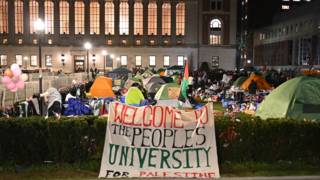
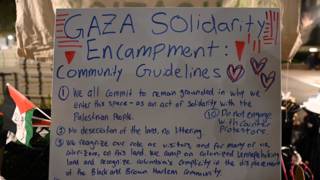
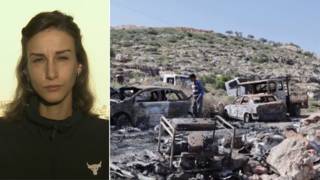
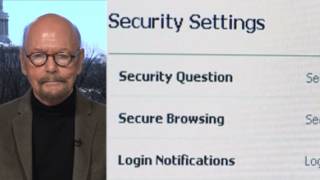





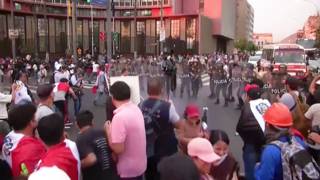

Media Options